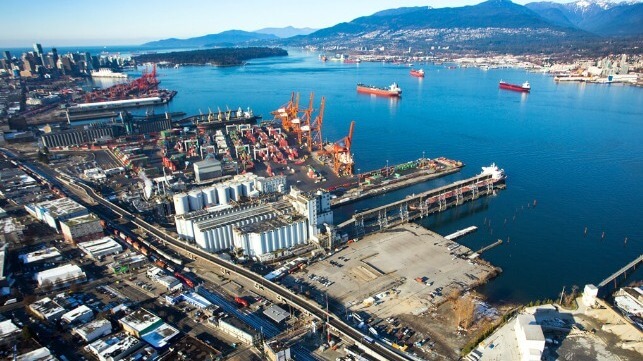Canadian Labor Board Rules ILWU Strike Notice Invalid

Responding to a request from the B.C. Maritime Employers Association (BCMEA), the Canada Industrial Labor Relations Board ruled Sunday that a strike notice from the province's longshore union was invalid. The strike was due to take effect at 1630 hours local time on Monday but will now be called off.
According to the board, the International Longshore and Warehouse Union (ILWU) only polled the employees of one BCMEA member company to find out whether they would like to hold a strike. Other ILWU members in other locations were not consulted. The board found that this was improper and that the union had not bargained in good faith; therefore, it instructed ILWU Local 514 to rescind its strike notice.
On Friday, BCMEA - the collective bargaining group for port employers on Canada's West Coast - said that it would lock out Local 514 workers across the province if the union went on strike at DP World Canada. The coastwide lockout would shut down all cargo docks in B.C., with exceptions for grain terminals and cruise lines.
The ILWU's main objection is DP World's reported decision to begin using automated systems at a rail yard in the Centerm container terminal in Vancouver. The union strongly opposes automation at all West Coast ports. Local 514 members rejected DP World's final contract offer by a margin of 99 to 1, in part because of the automation issue. Wages and retirement benefits are also part of the negotiations.

that matters most
Get the latest maritime news delivered to your inbox daily.
Federal mediators from the labor relations board will be working with the ILWU and BCMEA this week in an attempt to negotiate a contract settlement.
A province-wide port strike rattled Canada's business community last year, and even though it ended in a successful resolution, the Canadian Federation of Independent Business (CFIB) has called for regulation to limit ILWU's ability to shut down the nation's primary seaports for Asian trade. "The economic damage is so significant," CFIB president Dan Kelly told CBC. "We can't keep doing this as a nation."
